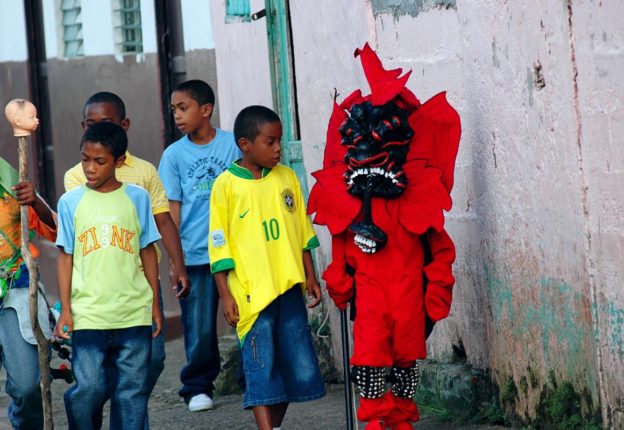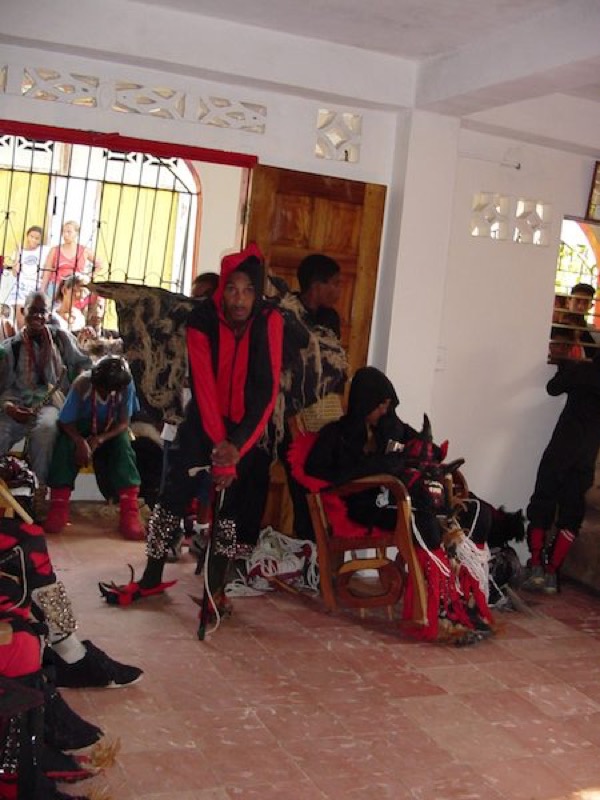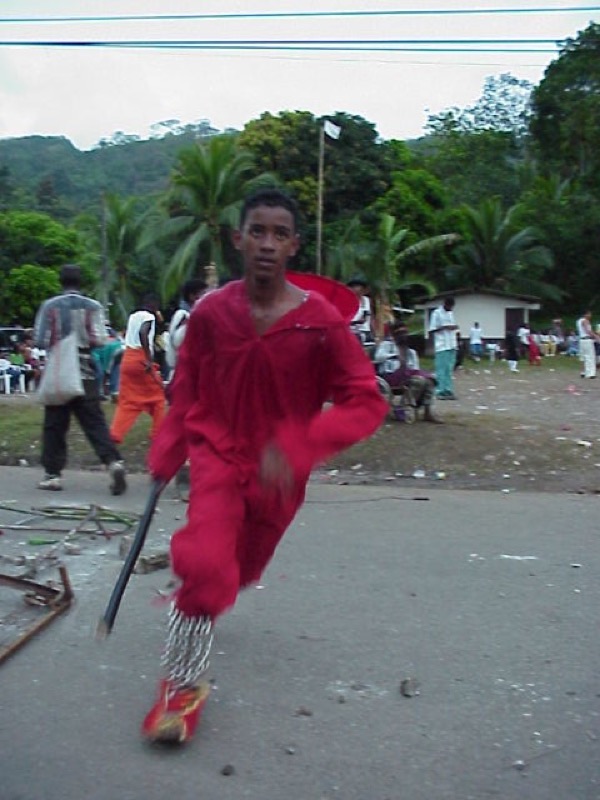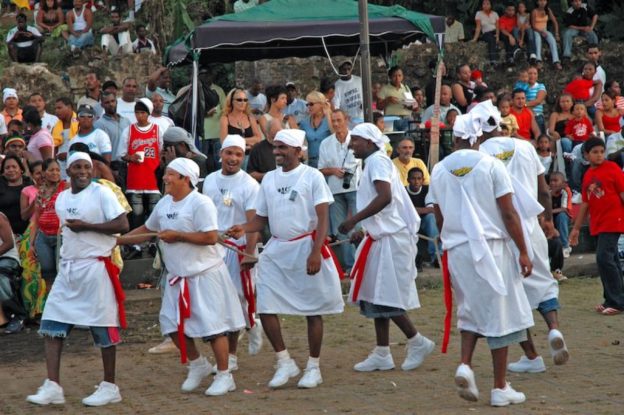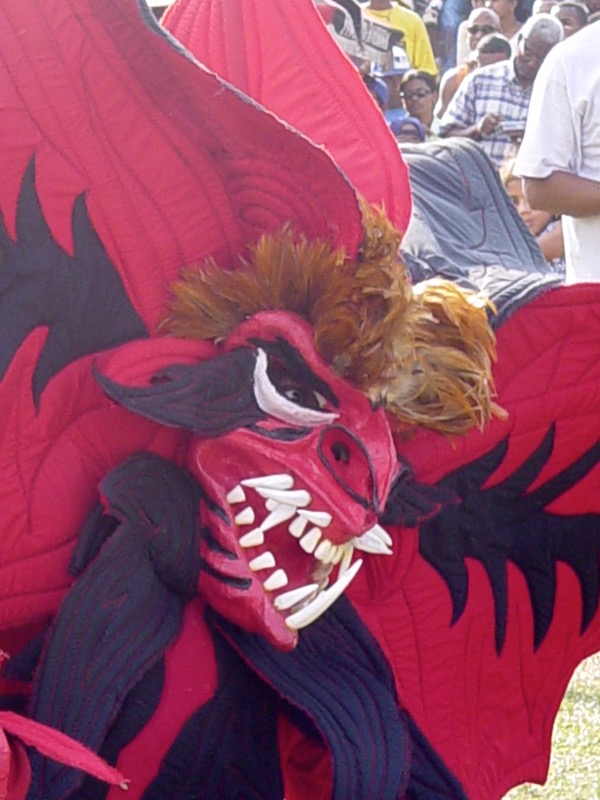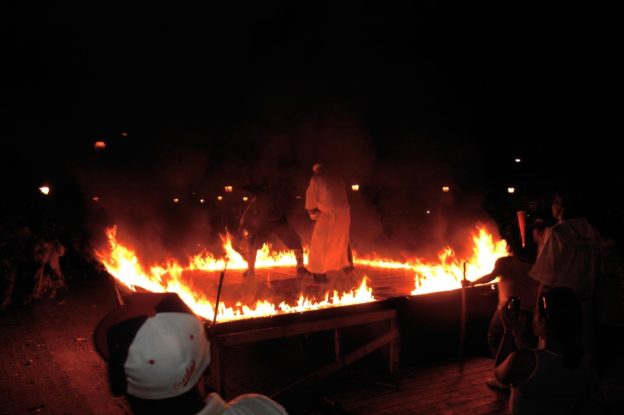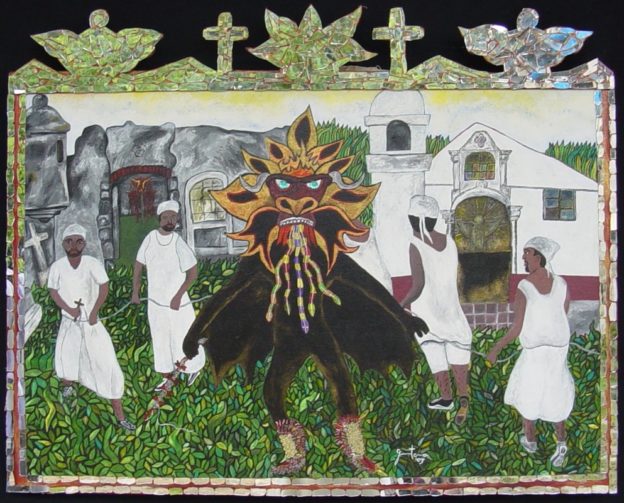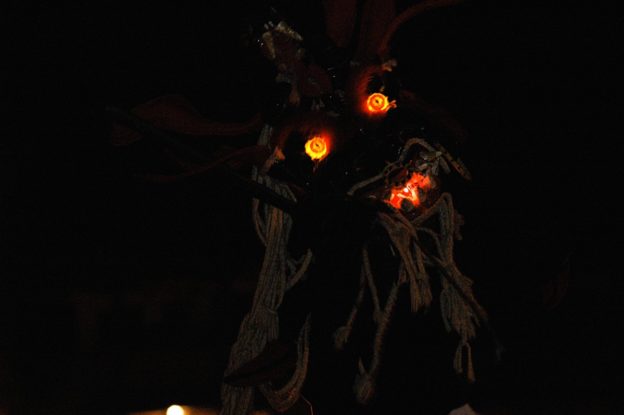In this excerpt, Jiménez discuses the ways in which the 20th century notion of the devil character in the Congo tradition of Panama was “born” in Portobelo and discusses the ways in which his mentor in the tradition, Celedonio Molinar, brought back the practice of “Blessing the Devils.”
In this excerpt, Solís discusses the enchantment she felt the first time that she witnessed Celedonio Molinar performing the role of Major Devil, the baptism of the devils, and how she learned about the performance traditions of Portobelo, Panama.
In this excerpt, Jiménez discusses how he began to play the role of the Major Devil character in the Congo tradition of Portobelo, Panama when Carlos Chavarria took a sabbatical from the role to study abroad in Russia.
In this excerpt, Jiménez discusses the significance of the devil character to the Congo tradition of Panama and his perspective on playing the Major Devil character.
In this excerpt, Molinar shares his experience of being symbolically blessed or “baptized” as the Major Devil character. Just as the “pujido” or “grunt” helps to amplify internal energy, the process of being symbolically baptized helps to abate energy.
In this excerpt, Molinar discusses the practice of symbolically selling the devil at the conclusion of the Congo game and his interpretation of what the devil character represents within the Congo tradition.
In this excerpt, Molinar discusses a few of the changes that he has witnessed in the devil character’s embodiment within the tradition that displease him and responds to Arturo Lindsay’s question regarding the escalating violence he has witnessed with the way some younger practitioners wield their whips.
In this excerpt, Esquina discusses the changes she has seen in the Congo tradition over the course of her lifetime. Specifically, she talks about changes that she has witnessed in ways in which younger practitioners who perform the role of devil in other communities sometimes put razor blades in their whips, which violates the nature of the game.
In this excerpt, Esquina discusses the changes she has seen in the Congo tradition over the course of her lifetime. Specifically, she talks about changes that she has witnessed in ways in which the devil character is played.
In this short excerpt, Molinar laments some of the escalating violence that he witnessed in the early 21st century.
